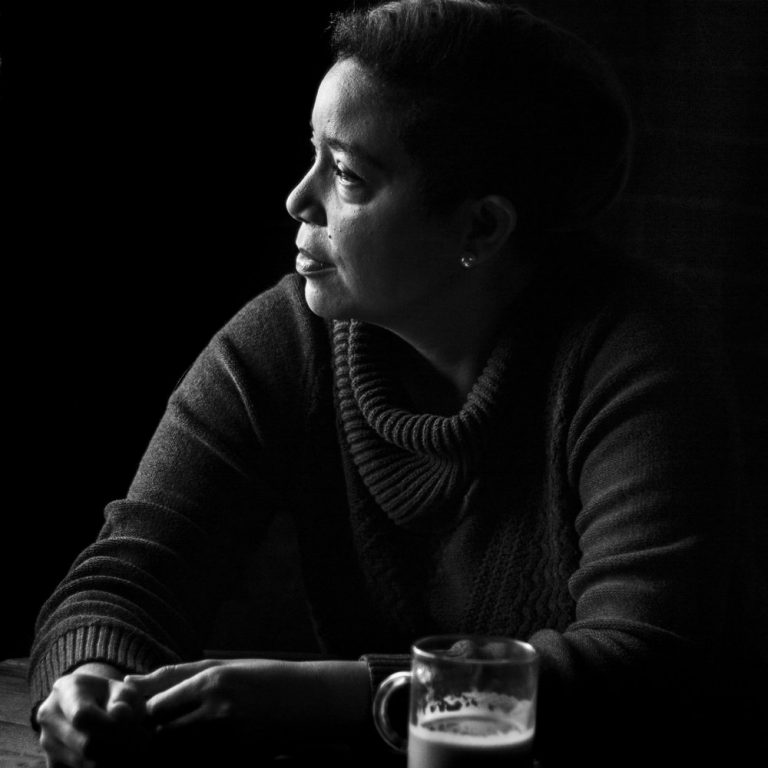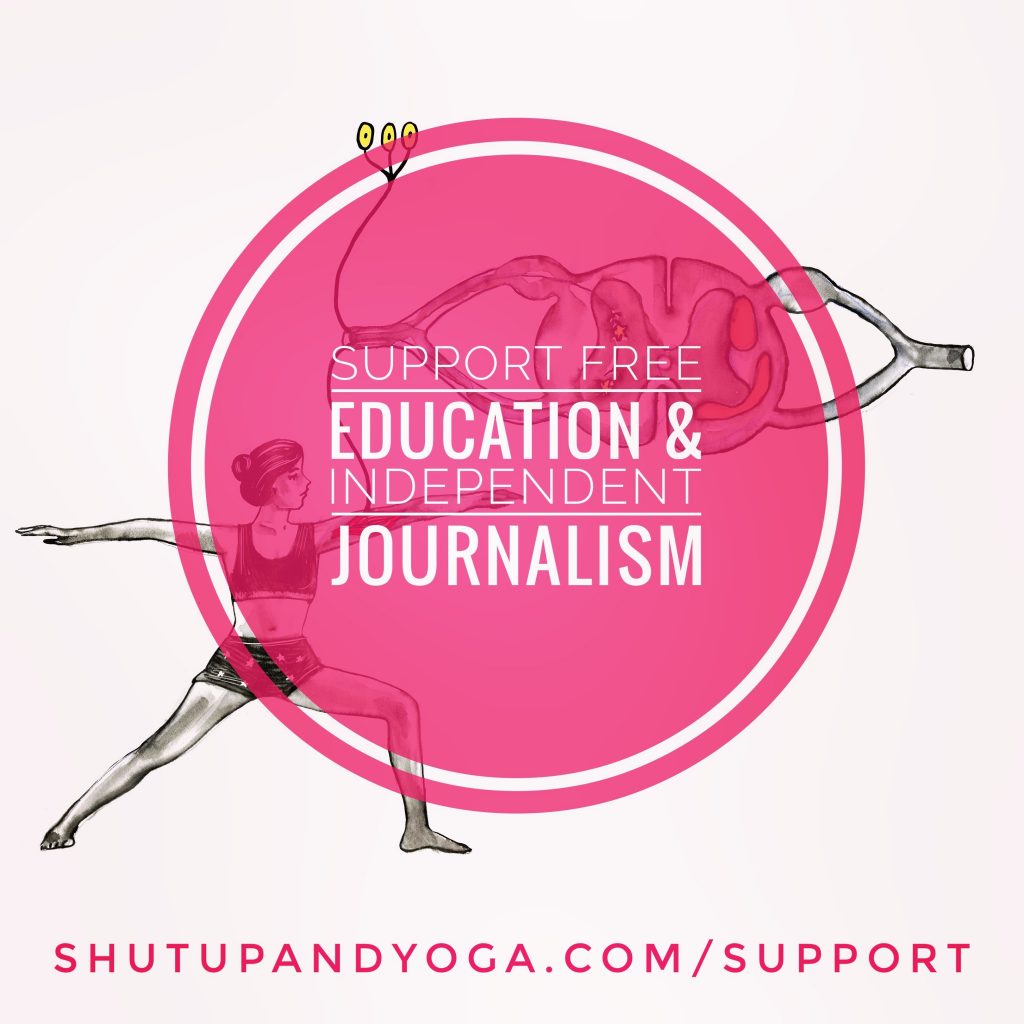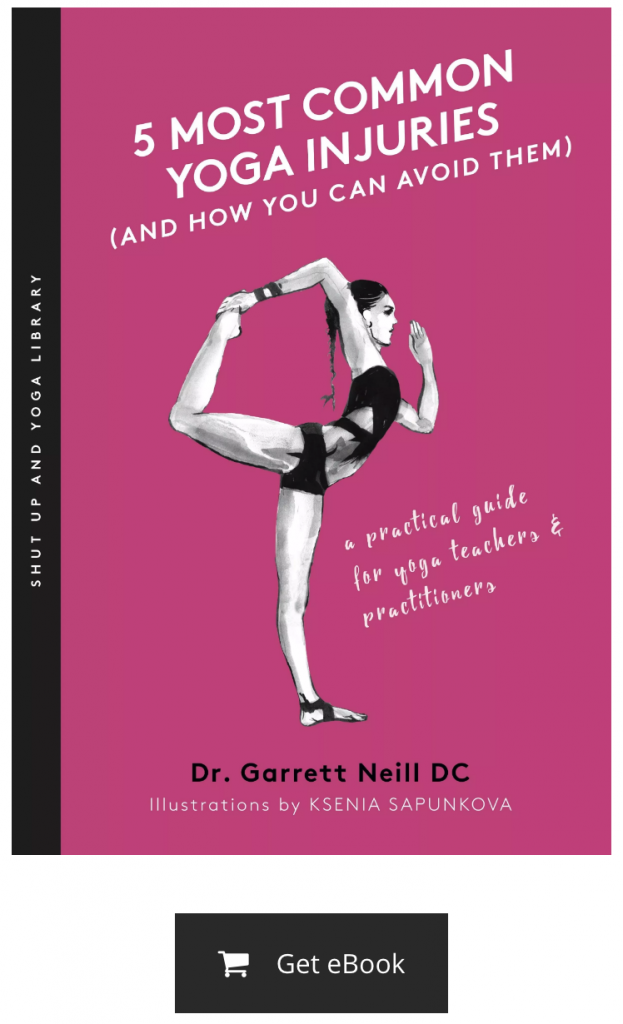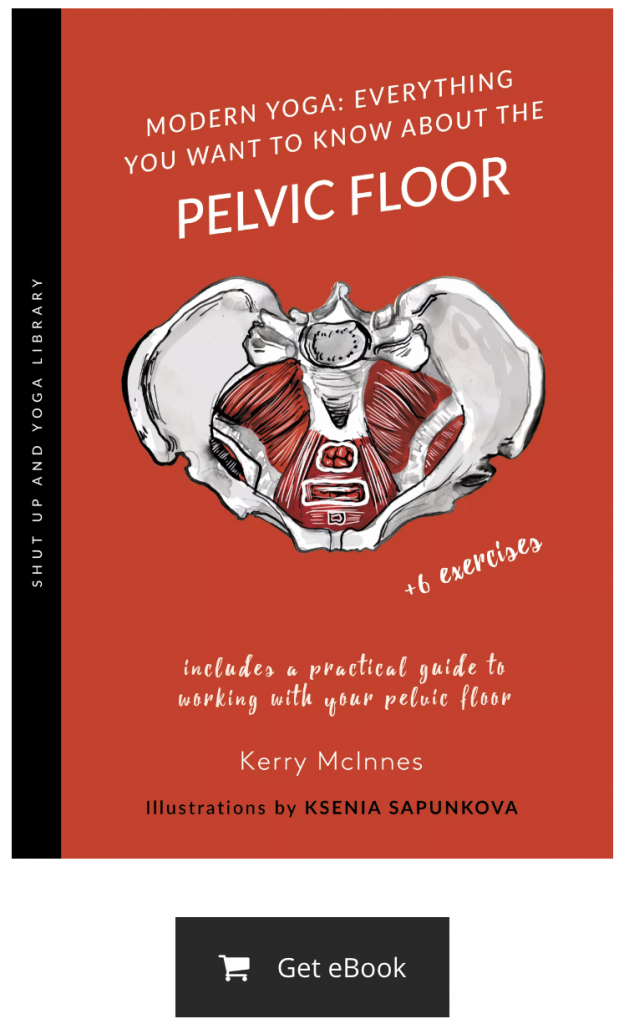@aprildawnharterlcsw
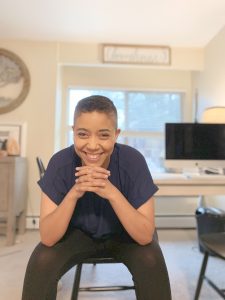
We were delighted to meet April Harter, anti-racism coach and activist, social worker, and peace advocate. In this interview, she tells us about what anti-racism work truly is and the importance of healing trauma to let go of our racist ways, patterns, and defense mechanisms. Read to learn about April’s background and philosophy, her views on leadership, and the basics of anti-racism work.
April, her Background & Philosophy
Can you tell us about your background? Did your work as a social worker always involve anti-racism?
It’s funny, because I never really intended to do anti-racism work with white people, specifically, but I always wanted to do macro social work. Macro social work means helping society on a large scale. After I graduated, I intended to do political social work, because that is the concentration I focused on most. However, as it turns out, the only jobs that were available that paid a decent living wage was medical social work. So, I worked as a medical social worker in hospice, nursing homes, hospitals, palliative, and conducting home visits while I worked for a major health insurance company.
After 8 years of medical social work, as an LMSW (Licensed Master of Social Work), I aimed at upgrading my license to an LCSW (Licensed Clinical Social Worker) so that I could set up a private practice. My dream in graduate school was to become a feminist therapist and that is exactly what I do, but not in the way I expected. I now use my expertise in feminist psychology to coach white people how to unlearn their racism.
Can you tell us what anti-racism work is about to you? How does it relate to healing?
First of all, racism is a behavior, and as such, it needs to be addressed as one. The majority of anti-racism work is conducted via a sociological or in a historical perspective, which is important, but psychology has been missing from the discourse. My aim has been to intersect anti-racism and psychology for white people in order to get at the root of where their racist behaviors come from.
Psychology has been missing from the anti-racism work discourse.
In the work I’ve done thus far, racism is very much connected to a history of unresolved trauma. When white people are racial triggered, what happens is that buried unresolved traumas are discharged onto people of color (POC). Unresolved traumas parallel unconscious racist behaviors. I help white people make connections between their unresolved traumas and their unconsciously racist behaviors. When they’re able to make this connection, then they no longer perpetrate unconsciously racist behaviors, because what was previously unknown is known.
This work is quite challenging for my clients both in the network I [ran] as well as the coaching program, because they start to see things in themselves they’ve never seen before. Ultimately, the emotional root of racism is a lot of shame. I work to help my clients learn to love themselves so that they can love (POC). It’s very hard for white people to not punish themselves, because the majority of anti-racism that is taught by mainstream anti-racism influencers is performative allyship.
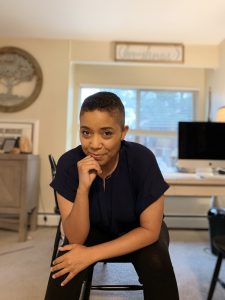
White people learn performative allyship which fuels perfectionism. Where there is perfectionism, there is shame, and shame leads to more self-hatred. A white people cannot learn how to love (POC) when they hate themselves. My work ends up being healing for white people, because once they learn where their racism comes from, they can then let go of how much they hate themselves for all of the racist behaviors they’ve done, because they’ve done “the work” of facing their racist defense mechanisms. They can forgive themselves once they’ve done the work and move on in their lives without guilt or shame. More importantly, this helps tremendously with their intimate relationships with (POC). They’re no longer nervous or anxious that they will act out in unconsciously racist ways (walking on eggshells).
When did you decide to get on this journey towards healing and why?
I thought I had healed enough from my racial trauma until I started coaching white people in the Spring of 2018. I started my healing journey, because in order to help the white people that hired me to help them stop their racist behaviors, I needed to face my own trauma. I discovered that I had not healed enough when I first started coaching, because I was emotionally triggered by some of my clients that exhibited racist denial. Racist denial is a way of using the defense mechanism of denial in a racist way. This happens a lot when white people see themselves as “good,” but in reality, the’ve perpetrated unconscious acts of violence, even with the people of color (POC) that they know and love. They would project anger towards me for helping them expose their racism, and in turn, I would internally feel defensive towards them with feelings of anger too.
After the coaching session, I would go home angry and sad. I knew that these lingering feelings were not good for me or my clients; so, I explored these feelings through writing in my journal and practicing yoga. I use the Down Dog App recommended by my dear friend Kathy Nguyen, who is an athletic trainer and yoga instructor in Houston, Texas. Yoga is a type of somatic work and really helped me release my muscles, and in turn, explore feelings of anger and sadness that was buried deep inside of my heart.
Like a lot of (POC), I was in denial that racial trauma had affected me to such a severe degree, but it did. Like my clients, I was in a state of denial, too. In order to help them, I needed to face that emotional pain head on.

You talk about ancestry and being in touch with your ancestors, and we’ve noticed other anti-racism educators do too. How does that relate to anti-racism work? Why do you feel it’s important to talk about this?
This is a wonderful question, really. I am a deeply spiritual person and when I’m meditating, I often feel the presence of my ancestors. I believe that my ancestors who have been racially persecuted guide my work. It’s almost like I can feel it in my bones.
The way you proceed feels much gentler —read non-abusive— than many other anti-racism educators out there. Can you tell us about your relationship with the rest of the community of educators? How is your work perceived?
My work is not received well by many anti-racism educators, because I am a disruptive innovator in the field. I don’t teach performative allyship via teaching white behavior etiquette, because it’s inauthentic, and doesn’t really get to the root of the problem. They (both whites and POC) perceive my work as “coddling” white people, but in reality, I am doing the deeper, compassionate work, that is necessary.
I believe that my POC colleagues react the way they do with white people, because they experienced what I used to experience: racial battle fatigue. Like me, they too, need to focus on healing their racial trauma in order to be better educators for whites. This attitude only comes from influencers on Instagram, though. In the professional world of psychology, my work is very well received. I will be presenting my method at the Diversity in Parenting Conference in Anaheim, California in September 2019 with other psychotherapists. I truly believe that the future of anti-racism will be a behavioral approach and hope that my work inspires professionals in the field of mental health to get more involved in anti-racism work.
You state that you “rehabilitate racists” and the word rehabilitate caught our attention. It seems intentional — why did you choose it?
I sure do use the term rehabilitate! The word is extremely intentional. I believe that unconscious racism is a crime, like a misdemeanor, but it has never been considered a crime. The United States protects racism as a first amendment right, but in the UK, hate speech is a crime. I believe that racism is a criminal psychology that has been normalized in white culture.
Instead of punishing racists, I believe in reforming the way anti-racism is conducted, by focusing on rehabilitation.
Throughout the world, when a person commits a crime, they can either be punished or rehabilitated. I believe, wholeheartedly, that how we treat criminals is a reflection of how well we treat ourselves and others. Instead of punishing racists, I believe in reforming the way anti-racism is conducted, by focusing on rehabilitation. Rehabilitation is used to help prevent recidivism from those who have committed crimes in the first place; thus, in order to prevent the crime of racism in society, I rehabilitate the perpetrators of it through motivational interviewing and psychoeducation. It has been proven time and time again, that criminals who receive interventions through rehabilitation return to society in a more productive way. In my work, white people, and even white-passing (POC), return to their interracial relationships without perpetrating acts of racism.
What’s your favorite thing about being an anti-racism coach?
The work that I do is just straight up fun, seriously. A lot of people assume that because I’m black and that because I work with white people, I am miserable. This is not true at all. I love it when my clients in the network and in my program tell me that the (POC) they love have noticed their behavioral changes and feel so much closer to them now (safer). It gives me tremendous joy knowing that their interracial relationships are improving! I’ve had coaching clients of mine tell me that their romantic relationships have improved 10-fold, which is seriously awesome. I know that I’m making a huge impact, one person at a time, creating a ripple effect in society.
What projects are you currently working on?
I’m extremely excited about the book I will be writing summer 2019. The plan is to write “The Racist Signature Method” and publish it in 2020. I’m also in a podcast mastermind intensive with Tara McMullin in the What Works Network. I really want to create a podcast that will last, so, I will be working with Tara for the next 6 months in order to create something I know my audience will love. I’m thinking about inviting guests onto the podcast to get coaching with me using my method. I haven’t narrowed the content down yet, but I’m sure it’s going to be a hit!
Leadership, World Change, and Social Media
What does leadership mean to you? What qualities do you think a good leader has and shows?
I believe that more than anything, a leader knows when to admit they’re wrong. Let’s take a recent example of where I made a mistake. Recently, I called out anti-racism influencers on Instagram that cyberbullied me or attempted to replicate my work via astroturfing. In reality, I reacted in the way I did, because I grew up bullied and their bullying triggered me. I was reacting defensively and it was yet another layer of trauma work I needed to do. I felt violated and I needed to process this. It was a mistake to lash out at them, because it wasn’t about them, it was about me.
What I learned from this experience, is that the work that I conduct is valuable, and it is to be expected that people will astroturf or bully me for it. This is, unfortunately, what happens when you’re a disruptive innovator. So, not only does a leader need to be able to admit when they make a mistake, but they need to continuously work on their mental health. I truly believe, that corruption is nurtured when a leader thinks that their image is more important than their mental health. Leaders exist in this world to serve the public (not the other way around). In order to serve the public, we as leaders, need to interact with our audience and facilitate a safe environment in which everyone can explore, learn, and grow. As leaders, we also need to be able to forgive ourselves for our mistakes, and be transparent about it, even if it makes us “look bad.” If we can admit our faults and forgive ourselves, then we’re able to hold space for ourselves and our the people we work with.

If you could change one thing about the way leaders carry the movement of anti-racism work, what would it be?
It would help everyone if leaders who conduct anti-racism work could work with a consultant first before engaging in this type of work. This way, they would not teach performative allyship. White people need rehabilitation so that they do not teach whites anti-racism etiquette. People of color (POC) need to work on healing their racial trauma or they, too, will be teaching etiquette. This performative allyship is “do this” and “don’t do this” type of rhetoric, which does absolutely nothing for the cause.
What role does social media play in your work?
It plays a major role, really. The majority of people who discover me are on Instagram. The hashtags in Instagram make it easier for people to find my work and engage with me.
How do you recharge your batteries as a leader and social worker (and human!)?
I practice a lot of self-care, because it’s nothing new as a social worker. Social workers conduct emotionally challenging work, so, it’s taught to us to really focus on self-care. The most effective means for me is taking care of my body. I am a vegetarian, swim, lift weights, and practice yoga. When I take care of my body, my mind is at ease, and I feel a sense of calm that reduces stress and tension. I also only coach once a week as opposed to multiple times per week and work 3 days a week. Since the work I do is intense, I spend 4 days out of the week recharging as opposed to a standard 2-Day weekend.
Can you share your view on violence in the anti-racist social media world?
Violence is a really big topic. On social media, in particular Instagram, there is a type of violence that is perpetrated consistently, and those are narcissistic behaviors. When influencers get a large following, they instruct their followers directly or indirectly to bully other influencers or followers. This kind of cyberbullying needs to stop. Many influencers make a living by stirring up scandal, and truly, it does nothing for humanity. All this does is keep violent behavior alive and well.
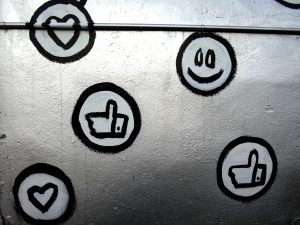
What are racist defense mechanisms and how do we avoid them on social media?
Defense mechanisms can’t be avoided, but they can be prevented. They need to be faced and it is deep work. The way to understand a racist defense mechanism is to explore it, but white people usually cannot do this on their own, because their denial tends to get in the way. That’s the interesting thing about racist defense mechanisms, is that they come in layers. In my program, we explore those layers.
You talk about racist saviorism and how white leadership in the anti-racism movement can be superficial. Do you think white people can be anti-racism leaders and if so, what should we focus on?
Yes. There is an assumption, as a white person, that one knows what anti-racist behavior is. It is very much rooted in performative allyship via anti-racism etiquette. If a white person is able to “follow the rules,” then they feel competent in what they’re doing, which then leads them to believe that they can conduct anti-racist leadership. They interact with (POC) who also teach performative allyship, which is what most (POC) teach, and then assume they’re doing a good job because “everyone else is doing it.”
White people consume mass quantities of content to be better “allies.” In reality, the work is not deep enough to explore the feelings that drive their racist behaviors.
Unfortunately, this couldn’t be further from the truth. Quite the contrary, they are stuck in what I like to call “The Cycle of Performative Allyship.” White people consume mass quantities of content, whether it be a workbook or video, in order to be better “allies.” In reality, the work is not deep enough to explore the feelings that drive their racist behaviors, and they end up enabling intellectualizing and perfectionism, which are two forms of racist defense mechanisms.
Anti-Racism 101; Lingo and a Guide to Interactions
What is unintentional racism and what are the first steps towards understanding its scope?
Unintentional racism is whenever a white person is racially triggered and reacts in a racist defense mechanism. The first step to understand its scope is to explore the term defense mechanisms, which originally stems from Sigmund Freud and is used in psychodynamic theories in psychology.
As introduced above, a lot of our racist patterns are completely unconscious behavior. You mention how perfectionism and even anti-racist leadership play a role in that. Can you tell us more about this? How can we become aware of those unconscious patterns?
In order to shift from unconscious to conscious awareness, it requires doing “the work” of seeking out help to discover these blindspots, as opposed to assuming one can do this on one’s own.
“White tears,” “white centering,” and “white fragility” are words we’re curious to understand. Can you tell us a little about them and how they show up in our lives?
White tears, white centering, and white fragility, reflect unresolved trauma in one’s life and this discharges, behaviorally, onto (POC) in the form of racist defense mechanisms. The explosion of emotion has to do with emotional repression, which is why the tears come out a lot. In the work I do, we explore feelings as opposed to repressing them. After all, repressing feelings leads to dissociation, which as a result, leads to more unconscious material, which lends oneself to more unconsciously racist behaviors.
How does spiritual maturity relate to anti-racism work and how do we integrate anti-racism work into our spiritual practices?
I tend to see spirit as the way our archetypes play out in different lifetimes. One way to integrate this concept into anti-racism work is to explore one’s shadow. Exploring oneself as a perpetrator of others is shadow work. We’re taking a look at the parts of ourselves that we don’t like to see. To do this requires one to value seeking the truth. The truth about ourselves can be scary, but when we face the things about ourselves we do not like, then we are able to learn to truly practice holistic healing by integrating this part of ourselves into our psyche. As a result, we can let go of what no longer serves us and keep what does. All of this is a grieving process and helps us develop. Shadow work is, without a doubt, trauma work.

You explained how anti-racism educators can become abusive on social media. How can we spot abuse and what are the best ways to react to it?
The majority of the abuse that takes place online is emotional and financial. If an anti-racism educator reacts defensively to a white person for acting out in unconsciously racist ways, then they can potentially react in emotionally abusive ways (bullying). Bullying includes threats, intimidation, triangulating, “call-outs” (whenever white people act out in racist ways when they are trying to learn), and lying about people. Financially, an anti-racism educator can exploit whites by not providing them solutions to address their racism and then expecting payment for their emotional labor. This is an example of enmeshment, a lack of interpersonal boundaries.
Can you tell us about performative allyship? What is it and how does it differ from true, authentic allyship? How does it show up? How can we learn to be aware of it?
Performative allyship is whenever anti-racism is taught in a way where rules of engagement or etiquette are memorized and adhered. As a result, interracial interactions are based on conditions, which is emotionally inauthentic. It shows up whenever a white person acts in a way based on what they’ve learned, but deep inside, they’re feeling ashamed of themselves: that’s when you know you’re acting out in performative allyship.
Once we realize our behavior is deeply anchored in us and how racist we can be without even realizing it, most of us feel ashamed, discouraged, and have no clue where to start. If you could give our readers 1-3 tips on where to begin anti-racism work, what would they be?
- You’re not perfect and you’re going to make mistakes.
- Punishment will not help you learn how to be anti-racist.
- Anti-racism is rooted in self-love and not self-hate.
In the yoga space, we notice that, sometimes, initiatives are organized/targeted specifically for POC rather than for everyone. We understand that this is necessary, just like gay prides are organized for the LQBTQ+ community to have safe spaces to go to. How can we, as yoga practitioners, educators, and organizations, also bridge the gap between those spaces to create a shared community?
The space that truly needs to be focused on is not a physical space, but the space within your heart. When you learn how to become authentically anti-racist, then any and all spaces become inclusive.
And finally, how can we make sure the work we’re doing isn’t superficial?
You’ll know it’s not superficial when you can genuinely forgive yourself for your mistakes and then learn from them without self-hate (shame).
For Fun
A book that changed your life?
Race Matters, by Cornel West. This was my first introduction to critical race theory. When I read it, it really set my heart on fire.
If you could invite someone to dinner, who would it be?
I would invite James Baldwin, because like him, I am black, queer, and am an author on the topic of racism in society.

What’s your favorite word and why?
Peace. Why? Because I truly believe that when we focus on resolving violent conflict, we have peace, which leads to happiness within oneself and throughout the world — like a ripple effect.
Check out April’s Instagram and her website, where you’ll find more information about her and her work to take your anti-racism work deeper.
Edited by Ely Bakouche
Enjoyed reading this article? Consider supporting us on Patreon or making a one-time donation. As little as $2 will allow us to publish many more amazing articles about yoga and mindfulness.
